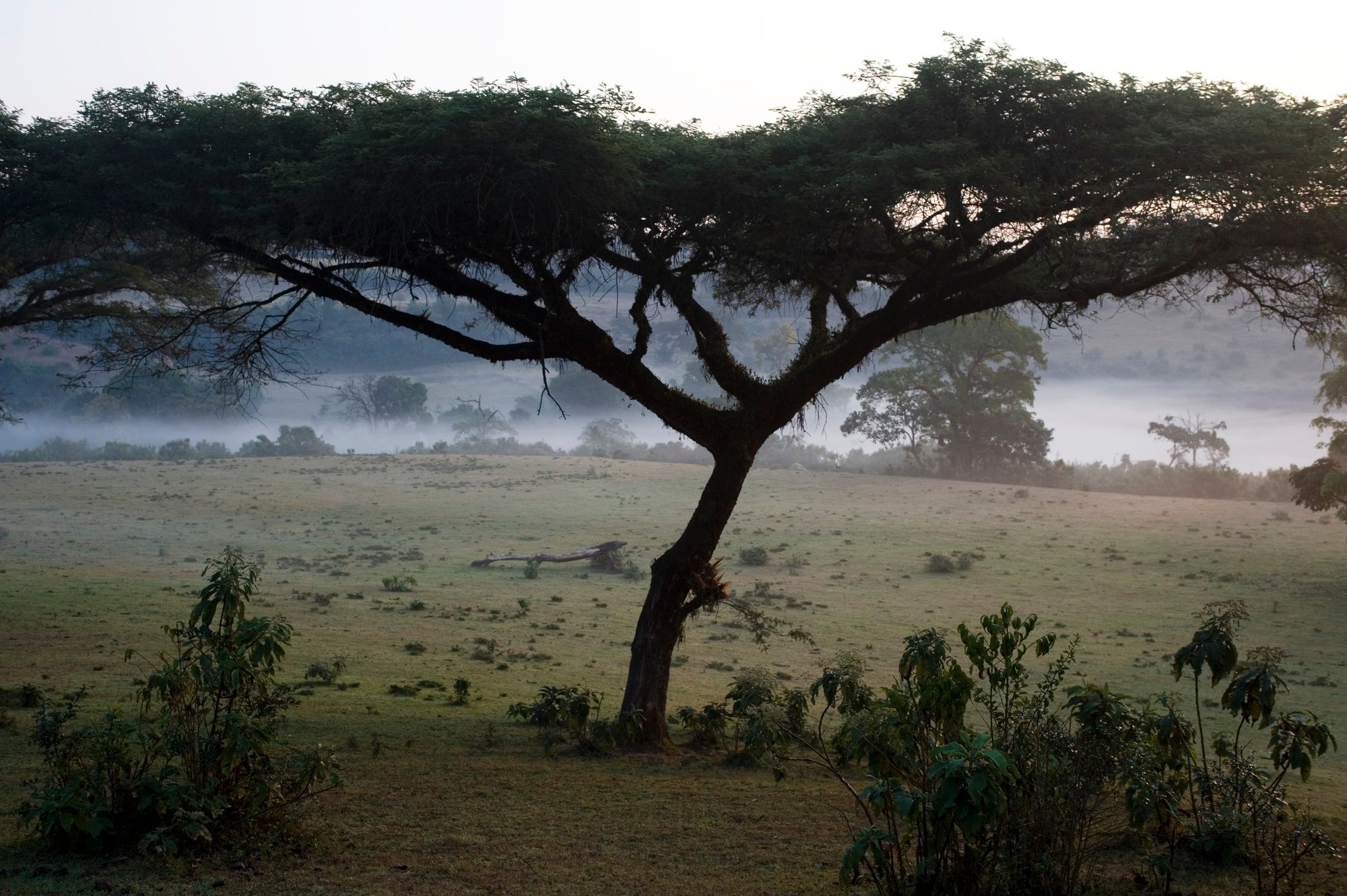
This coffee is from Gelanabaya Station, Borena zone, Yirgacheffe region. The small-holder farmers have worked hard over the years to develop a distinguished and respected reputation within the speciality coffee world, especially for their micro-lots.
The Yirgacheffe region has an impressively high altitude (as high as 2,200 masl in some areas), fertile soil, predictable rains and plenty of local knowledge and experience - all these factors pool together to guarantee the highest quality. The indigenous 'heirloom' varietals grow wild in Ethiopia and make for an unusual but perfectly balanced and refined cup.
This wine process is so-called because the techniques involved have been borrowed from the wine industry, though similar techniques can be found in many products derived from controlled fermentation. In summary, coffee cherries are fermented in sealed, oxygen-deprived, stainless steel tanks with careful monitoring of temperature.
Firstly, cherries are sorted to select only the ripest for processing. The cherries are then placed in a stainless steel tank (pictured) with a specialised fermentation valve part filled with water. As the fermentation process begins, CO2 is released and builds up in the tank. Once the internal pressure of the tank exceeds the atmospheric pressure, the CO2 will push through the water in the valve as individual bubbles. The valve prevents any air from entering the tank from the outside, allowing for extended fermentation whilst reducing the risk of spoilage and negative fermented flavours.
Fermentation time is dictated by the temperature readings inside the tank, but typically the process lasts for 4-5 days, after which the cherries are dried in the traditional way: on raised African beds for 15 - 18 days. Once the cherries have sufficiently dried they are rested before being transported to a central dry mill in Addis Ababa for secondary processing (hulling, grading, sorting and handpicking) Djibouti.
Ethiopia first started exporting coffee in the 15th century. It was brought by Somali merchants to Yemen for Sufi mystics, as they drank it to concentrate better on their chanting. Today, coffee export makes up around 70% of the county's export earnings, and it is estimated that a quarter of the Ethiopian population works within the coffee industry.
Almost all coffee is grown on small farms, or ''garden coffees'' that cover less than a hectare and producing around 300kg of coffee per year. This is also one of the only countries with wild grown coffee that is harvested from native forest trees. Even the famous Geisha varietal can be found growing wild here.

Ethiopia is famous for producing incredible sun dried naturally processed coffees. However, over half of all Ethiopian coffee is processed using this method. The coffee cherry is pulped to removed the fruit, fermented and then washed.
Your cart is currently empty.